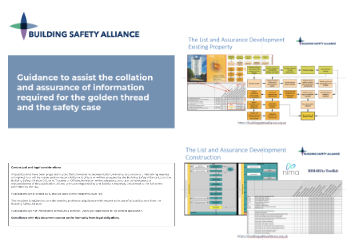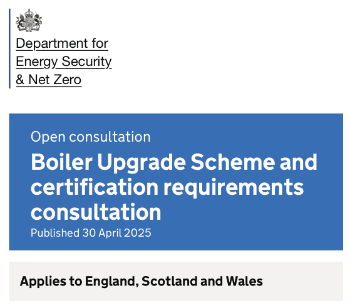Registration, evaluation, authorisation and restriction of chemicals REACH
Contents |
[edit] Introduction
REACH regulation (EC No. 1907/2006) controls the Registration, Evaluation, Authorisation of Chemicals in the European Union. The regulation came into effect on 1 June 2007.
[edit] Transition from EU to UK
On 1 January 2021, the UK began its transition from EU REACH to UK REACH under the European Union (Withdrawal) Act 2018. After this date, the two regulations began to operate independent of - but in tandem with - each other. This transition period was scheduled to on 28 October 2021.
After the transition period, UK REACH will control regulation of the commercial supply and purchase of chemicals and mixtures within Great Britain (England, Scotland and Wales). EU REACH will continue to apply to materials moving to and from:
- The European Union (EU).
- The European Economic Area (EEA).
- Northern Ireland (NI) under the Northern Ireland Protocol.
[edit] UK REACH principles
UK REACH was designed to replicate the aims and principles of EU REACH. These include:
- The ‘no data, no market’ principle.
- The ‘last resort’ principle on animal testing.
- Access to information for workers.
- The precautionary principle.
In addition to the principles of EU REACH, UK REACH promotes the use of alternative methods for the assessment of the hazardous properties of substances. It also aims to provide a high level of protection for human health and the environment from the use of chemicals.
[edit] The coverage of REACH
Under UK REACH, the burden of proof for compliance is on companies. It is intended to make the people who place chemicals on the market (manufacturers and importers) responsible for understanding and managing the risks associated with their use. This means that manufacturers and importers who wish to do business in Great Britain must register chemicals in order to access this market.
UK REACH applies to many chemical substances including those used in industrial processes such as cleaning products, paints and other chemical-based components associated with the construction industry. There are three groups of chemicals that are specifically controlled under REACH:
- The candidate list of substances of very high concern (SVHC)
- Annex XIV substances - priority SVHCs from the candidate list that require an authorisation for their supply and use
- Annex XVII restricted substances - particular hazardous substances that have controls on how they can be supplied or used.
UK REACH covers all sectors - not just those in the chemical industry - that manufacture, import, distribute or use chemicals as raw materials or finished products. It applies to all companies, regardless of size. It also requires that every actor in the supply chain communicates information on the safe use of chemicals.
[edit] Registration of substances
At the end of the transition period, companies have two, four or six years to complete the full registration of substances. The Health and Safety Executive (HSE) acts as the UK Agency for registration. Submitting an Article 26 inquiry to notify the HSE about the intention to register a substance is the first step in the process
The time allocation depends on the tonnage band and hazard profile of the substance. Importers based in Great Britain must also submit some information about the substances they source from Northern Ireland in quantities of one tonne or more. This information should be submitted within 300 days of the end of the transition period.
[edit] Exceptions and ‘grandfathering’
Under some circumstances, companies may not be required to register under UK REACH. This generally applies to situations involving research and development for new products, particularly where quantities are less than one tonne per year.
Where more than one tonne is used in a year for Product and Process Orientated Research and Development (PPORD) purposes, the manufacturer or importer can apply for an exemption from the obligation to register for a period of up to five years. For situations where a PPORD was in place prior to Brexit, this will be carried over and the same conditions and exemption period will apply.
In some cases, EU REACH registrations held by GB-based businesses were carried across directly into UK REACH, legally ‘grandfathering’ the registrations into the new regime. There was an additional aspect of the process that had to be submitted to the HSE by 30 April 2021 using the UK REACH system ‘Comply with UK REACH’. It is possible to contact the HSE for questions about completing late grandfathering registrations by sending an email to ukreach.grandfathering@hse.gov.uk.
[edit] Related articles on Designing Buildings
- Brexit standards, products and regulatory updates.
- Construction chemicals.
- Construction materials.
- COSHH.
- Examining the 2021 construction materials shortage.
- Hazardous substances.
- Health and Safety Executive.
- Health and safety for building design and construction.
- UKCA mark transition extension for construction products requested.
[edit] External resources
Featured articles and news
Licensing construction in the UK
As the latest report and proposal to licence builders reaches Parliament.
Building Safety Alliance golden thread guidance
Extensive excel checklist of information with guidance document freely accessible.
Fair Payment Code and other payment initiatives
For fair and late payments, need to work together to add value.
Pre-planning delivery programmes and delay penalties
Proposed for housebuilders in government reform: Speeding Up Build Out.
High street health: converting a building for healthcare uses
The benefits of health centres acting as new anchor sites in the high street.
The Remarkable Pinwill Sisters: from ‘lady woodcarvers’ to professionals. Book review.
Skills gap and investment returns on apprenticeships
ECA welcomes new reports from JTL Training and The Electrotechnical Skills Partnership.
Committee report criticises UK retrofit schemes
CIOB responds to UK’s Energy Security and Net Zero Committee report.
Design and construction industry podcasts
Professional development, practice, the pandemic, platforms and podcasts. Have we missed anything?
C20 Society; Buildings at Risk List 2025
10 more buildings published with updates on the past decade of buildings featured.
Boiler Upgrade Scheme and certifications consultation
Summary of government consultation, closing 11 June 2025.
Deputy editor of AT, Tim Fraser, discusses the newly formed society with its current chair, Chris Halligan MCIAT.
Barratt Lo-E passivhaus standard homes planned enmasse
With an initial 728 Lo-E homes across two sites and many more planned for the future.
Government urged to uphold Warm Homes commitment
ECA and industry bodies write to Government concerning its 13.2 billion Warm Homes manifesto commitment.
From project managers to rising stars, sustainability pioneers and more.
Places of Worship in Britain and Ireland, 1929-1990. Book review.
The emancipation of women in art.
























